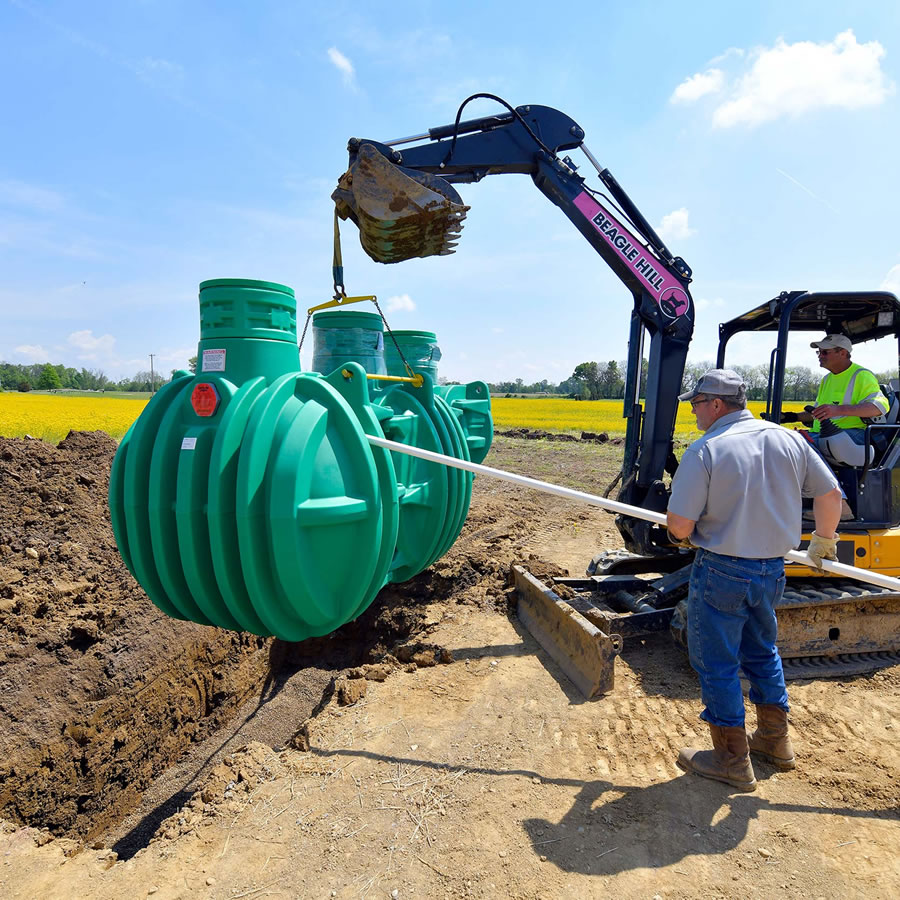WE NOT ONLY PUMP YOUR TANK - WE CLEAN IT! Up to 36 Months Financing Available
Call Septic Blue Now 813-355-9188
It's Easier Schedule Online
WE NOT ONLY PUMP YOUR TANK - WE CLEAN IT! Up to 36 Months Financing Available
Call Septic Blue Now 813-355-9188
It's Easier Schedule Online

When installing a septic system, homeowners face the decision of choosing between an above-ground and an underground septic system. Each option comes with its advantages and disadvantages, and making the right choice depends on various factors such as property layout, soil conditions, and maintenance preferences.
In this blog post, our professionals from Septic Blue will explore the differences between the two systems, helping you determine which one best suits your needs.
An above-ground septic system, also known as a mound system, is designed to be installed in areas where soil conditions do not support a traditional underground system. In regions with high water tables, shallow soil, or inadequate drainage, these systems are frequently implemented. The wastewater is treated in a mound, where it filters through layers of sand and gravel before returning to the ground.
In order to guarantee proper drainage, the implementation of an above-ground septic system frequently necessitates additional space, as the mound must be constructed at a higher elevation. Although they may be more visible and require additional landscaping to blend in with your property, these systems can be a great alternative when an underground system isn't feasible.
Underground septic systems, also known as conventional systems, are the more traditional option and are installed below the ground. In this system, wastewater flows from the home into the septic tank, where solids settle, and the effluent is then distributed through drain fields or leach fields for natural filtration into the soil.
Underground systems are generally more discrete and can be simpler to maintain once they have been implemented correctly. However, they require favorable soil conditions to function correctly, including good drainage and adequate space. If your soil doesn't absorb water efficiently, you may need to consider other options or modifications, which could involve consulting a septic company for guidance.
If you own a rental property that relies on a…
Read More+Do you have a septic system in your backyard? Are…
Read More+A lovely lush lawn is a beautiful sight for any…
Read More+Septic tank installation is one of the most significant factors to think about when deciding between the two systems. As a result of the complexity of construction and the materials necessary to construct the mound, above-ground systems are generally more expensive. Nevertheless, in the event that your property is plagued by substandard soil conditions, an above-ground system may be the sole viable alternative, despite the increased expense.
Underground systems are generally more cost-effective; however, they necessitate specific soil conditions to function effectively. It is crucial to seek the advice of a professional company in order to assess the requirements of your property and obtain precise cost estimates for both alternatives. Proper installation is vital, as poor installation can lead to issues down the line, including the need for septic tank repair or replacement.
Regular maintenance is necessary for both above-ground and underground septic systems to ensure their correct operation over time. Septic tank pumping, cleaning and regular inspections are essential for both systems to prevent clogs, leaks, or failures.
The exposure of above-ground systems to environmental elements may necessitate more frequent monitoring. It is important to maintain the mound in optimal condition, as it may erode over time or be impacted by vegetation, which can compromise the effectiveness of the system. You must monitor the drain field in underground systems to prevent it from becoming saturated or obstructed, as this could result in the need for costly septic tank repairs.
Are you in need of septic tank cleaning? Luckily, we at Septic Blue have dedicated workers ready at your service. Contact our representatives for more questions.